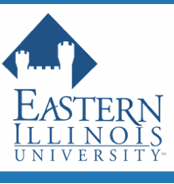Preferred Delivery
Virtual
Length of Presentation
50 minutes
Start Date
7-10-2022 10:00 AM
End Date
7-10-2022 11:00 AM
Document Type
Workshop
Abstract
Office spaces are the first in-person introduction for individuals to access services. However, these spaces are frequently, even if unintentionally, biased against marginalized and underserved populations. Cuthbert and Taylor (2019) noted the importance of inclusive language and heightened awareness of physical requirements for spaces as ways to impact a sense of connectedness to an environment. Hartal (2018) encourages open communication among staff regarding issues related to diversity and celebrating individual differences. These discussions and trainings can help dismantle microaggressions and empower employees to address othering behavior in an assertive and meaningful way (Fox & Ore, 2010). This presentation will address multiple potential diversity concerns in the office setting by creating meaningful steps individuals and organizations can take to make spaces more welcoming and inclusive.
Description
This presentation will address the complicated but essential ways that individuals and organizations can positively impact public spaces to make them welcoming and empowering for diverse individuals. Attending this presentation is useful for anyone who works in a space which consumers access, even if this happens in a virtual environment. The presentation will build skills in attendees to identify and address potential blind spots related to multiple diverse populations in order to better access and offer services to individuals. The following objectives are in place: 1.) Attendees will be informed of current research and best practices regarding physical spaces and representation in these areas. 2.) Attendees will identify actionable steps to take to make their spaces more inclusive and welcoming for diverse populations including body size diversity, religion SES, LGBTQ, physical disability, and race/ethnicity. 3.) Attendees will identify actionable steps to name and address their own biases in order to support a culture of inclusivity in the work environment. All of these objectives are in alignment with the MEI core principles of diversity, inclusion, equity, and equity-mindedness.
Creative Commons License

This work is licensed under a Creative Commons Attribution-Noncommercial-No Derivative Works 4.0 License.
Included in
Feminist, Gender, and Sexuality Studies Commons, Psychiatry and Psychology Commons, Public Health Commons, Race, Ethnicity and Post-Colonial Studies Commons, Rehabilitation and Therapy Commons, Religion Commons, Social and Behavioral Sciences Commons
Beyond Outdated Magazines and Motivational Posters: How to Make Offices Safer and More Assessable
Office spaces are the first in-person introduction for individuals to access services. However, these spaces are frequently, even if unintentionally, biased against marginalized and underserved populations. Cuthbert and Taylor (2019) noted the importance of inclusive language and heightened awareness of physical requirements for spaces as ways to impact a sense of connectedness to an environment. Hartal (2018) encourages open communication among staff regarding issues related to diversity and celebrating individual differences. These discussions and trainings can help dismantle microaggressions and empower employees to address othering behavior in an assertive and meaningful way (Fox & Ore, 2010). This presentation will address multiple potential diversity concerns in the office setting by creating meaningful steps individuals and organizations can take to make spaces more welcoming and inclusive.





Speaker Information
Danessa Carter is an Assistant Professor in Counseling and Higher Education at Eastern Illinois University. She has been a licensed clinician in the state of Illinois for 10 years. During that time, she obtained her Ph.D. from Northern Illinois University and has specialized in treating clients with substance use disorders. Dr. Carter is also active in research and education providing services to underserved populations in rural communities.
Kelsey Boll is a second-year student working to obtain her master’s in Clinical Mental Health Counseling from Eastern Illinois University. Kelsey has been a graduate assistant in the department for her first year and is continuing on as a graduate assistant in the department for her second year where she will be actively working in the Basic Skills class to assist in training first year students in the first practical course. Kelsey has significant history working in the mental health field as support staff.
Amina Feder is a second-year student working to obtain her master’s in Clinical Mental Health Counseling from Eastern Illinois University. Amina has been a graduate assistant in the department for her first year and is continuing on as a graduate assistant in the department for her second year where she will be actively working in the Basic Skills class to assist in training first year students in the first practical course. Amina spent several years working for a local sexual assault counseling organization. During her time there, she provided prevention training and education for both youth and adults.